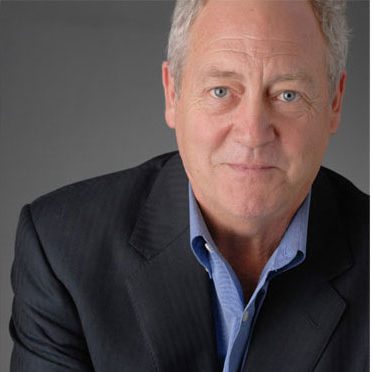Lobbyist explains switch in nuclear position
Published: April 18, 2008
Lobbyist explains switch in nuclear position
By Bob Audette
April 18, 2008
A founding member of Greenpeace International, who once called nuclear power plants “the most dangerous devices that man has ever created,” has since changed his philosophy and become an advocate for nuclear power.
It was 1976 when Patrick Moore wrote, “Their construction and proliferation is the most irresponsible, in fact the most criminal, act ever to have taken place on this planet.”
In the 30 years since he penned those words, Moore has come to believe nuclear power will play a prominent role in slowing down and eventually reversing global climate change.
On Wednesday, he visited the Reformer to talk about the change in his philosophy.
Moore has visited Vermont several times in the past year on behalf of the Vermont Energy Partnership, a lobbying group that believes the relicensing of Vermont Yankee nuclear power plant is in the best interests of the state.
The Vermont Energy Partnership receives much of its funding from the nuclear industry, including Entergy, which owns and operates Yankee.
“There is no escaping the fact that 6 billion people wake up every day with real needs,” he said. “And we have to get those from the environment.”
The challenge today is figuring out how to continue getting those things from the resources available while reducing humanity’s impact on the environment. Since he left Greenpeace, he has been using science and technology to find ways to make forestry, fishing and agriculture more environmentally friendly.
“It is a fact you can change the impact on the environment by changing practices and behaviors. It doesn’t mean you stop cutting trees. It means you do it in a different way.”
Those who oppose nuclear power are a vociferous minority, he said. “They are basically preying on people’s fears.”
Though many environmental groups haven’t changed their position on nuclear power, they don’t attend hearings to protest it either, he said.
“They’ve quietly decided to back off. Mostly what you see is a pretty ragtag bunch. The reason I believe the nuclear renaissance will succeed is because you’re not going to see thousands of people marching in the streets. There’s not that kind of opposition anymore.”
His philosophical change has earned him the enmity of the modern environmental movement.
“I had worked saving whales and baby seals by the thousands. I was opposed to nuclear energy and bombs, toxic waste and acid rain. I have not changed my mind on any of those issues except nuclear energy. I do not see that it is treasonous to have changed one’s mind on a single subject.”
While the environmental movement “got a lot of things right in the early years,” he said, its opposition to nuclear power resulted in dirty coal-fired plants. The environmental movement has become the “main obstacle to reducing carbon dioxide emissions and fossil fuel consumption,” he said, because it is opposed to all the viable technologies for electricity production, such as hydropower, nuclear energy and wind.
“Too many of these people have accepted certain beliefs.” He called them “career environmentalists (who are) never going to change their minds.”
It was that attitude that prompted him to leave Greenpeace. The final straw was a debate in the organization on a worldwide ban of chlorine.
“I realized none of my fellow directors had a formal science education (with which) to evaluate such an issue objectively.”
He also thinks the environmental movement’s disdain of genetic engineering is misguided.
“Using our knowledge of genetics to improve nutrition and reduce the environmental impact of agriculture. There is not a single piece of evidence proving the negative impact of genetic engineering on the environment or human health.”
Genetic engineering can help to reduce malnutrition in the world by creating foodstuffs such as “golden rice,” he said, a food staple that packs more nutritional punch than ordinary rice.
The allegation of harm — rather than the proof — is often enough to sway people’s opinions, he said, an attitude that is prevalent among those who oppose nuclear power.
“These plants have become safer and safer. It makes all the sense in the world to relicense these plants.”
Because of Vermont Yankee and the state’s contract with Hydro-Quebec, Vermont has the lowest carbon footprint of any state in the union, he said. If Vermont Yankee is shut down, the state will have to rely on dirtier technologies, such as natural gas and coal, for its electricity, he said.

